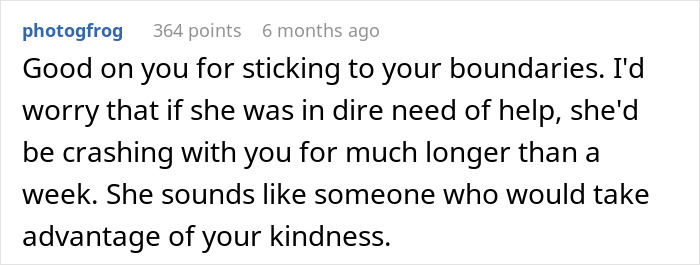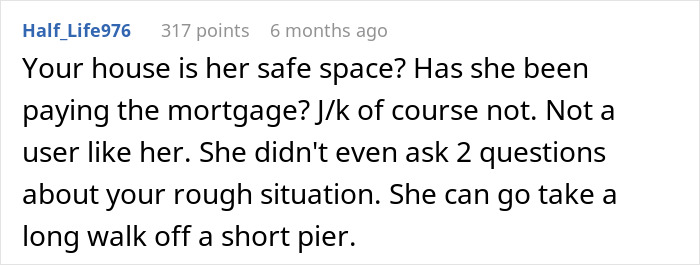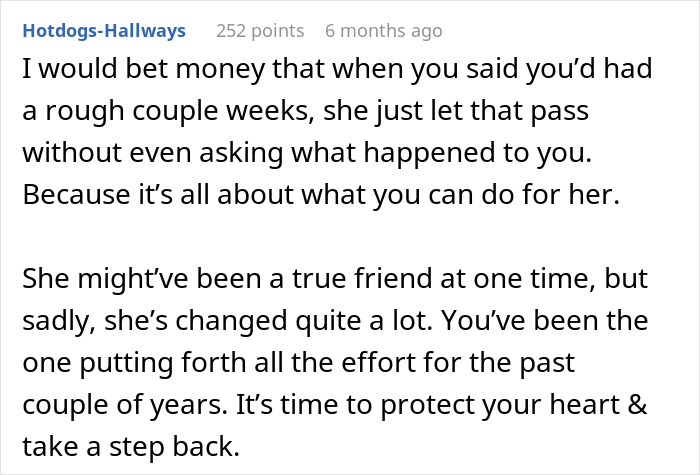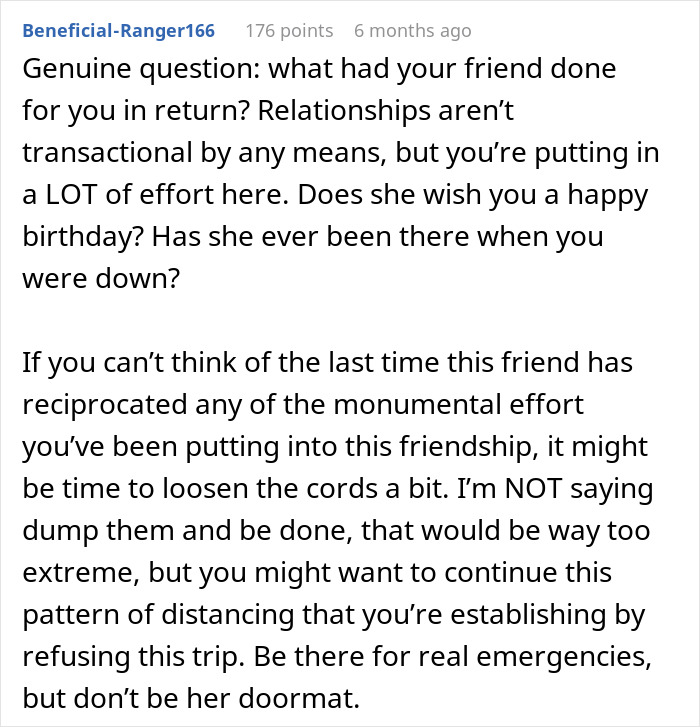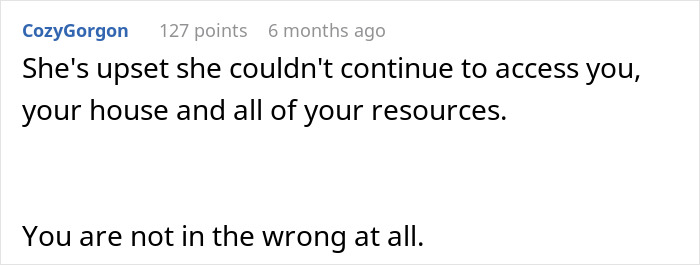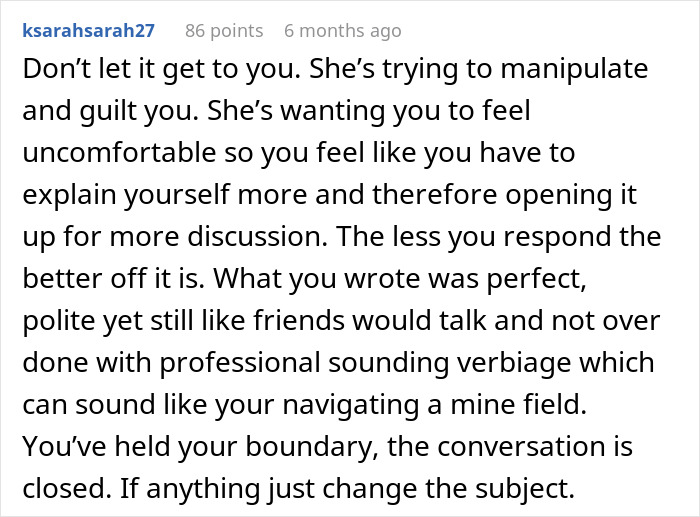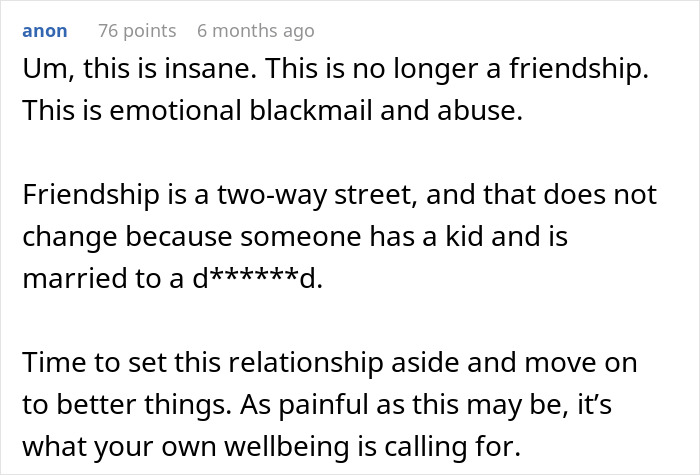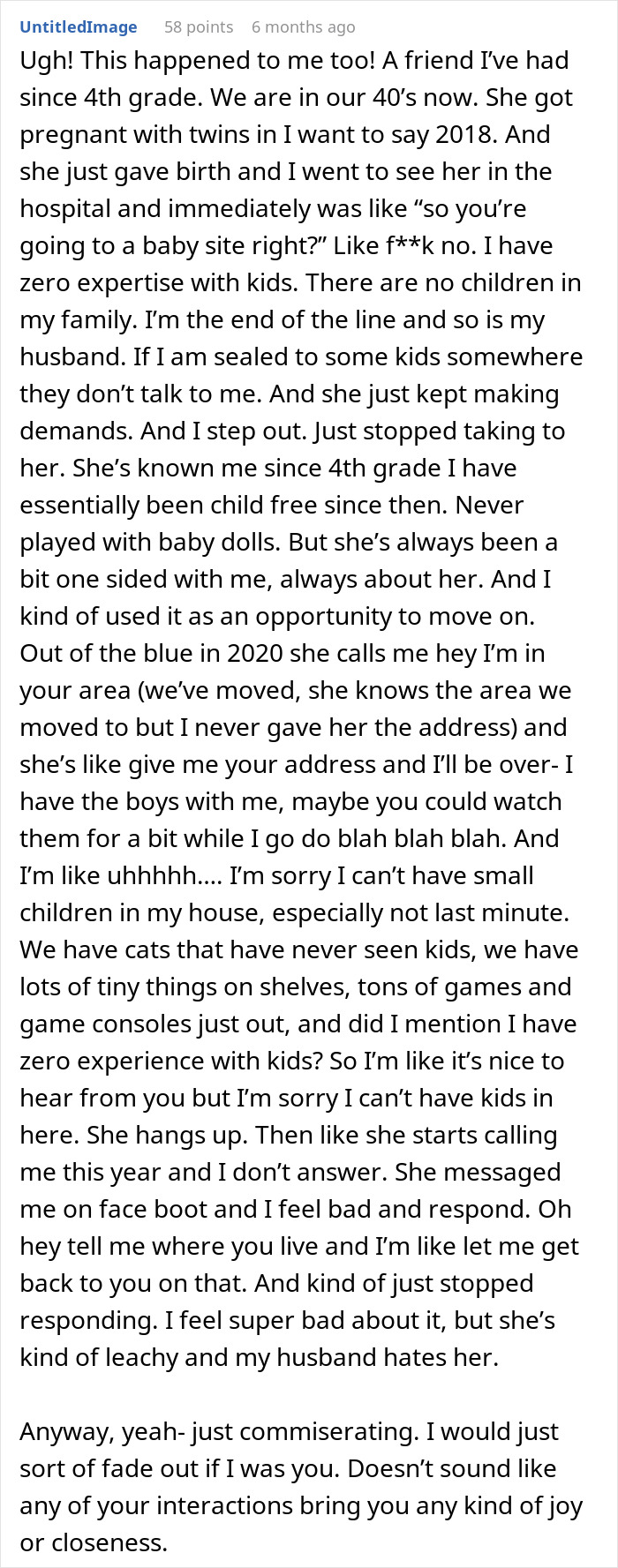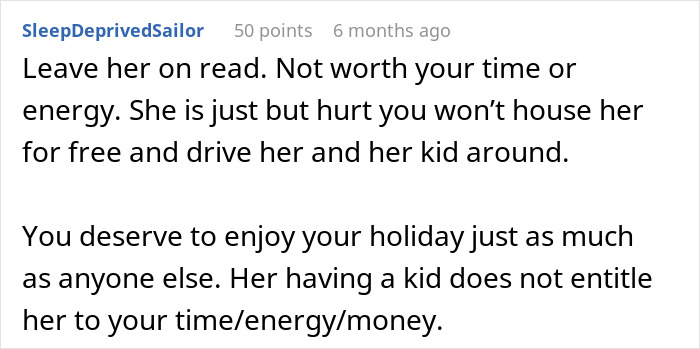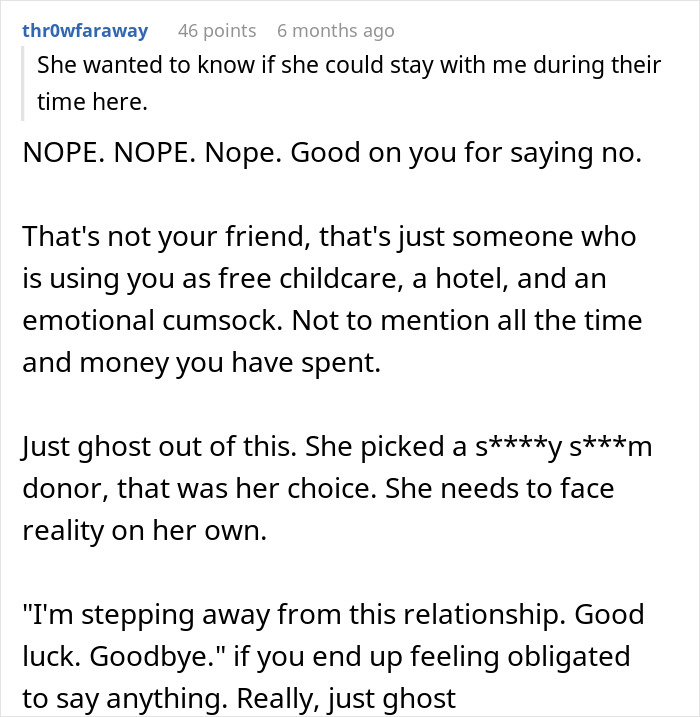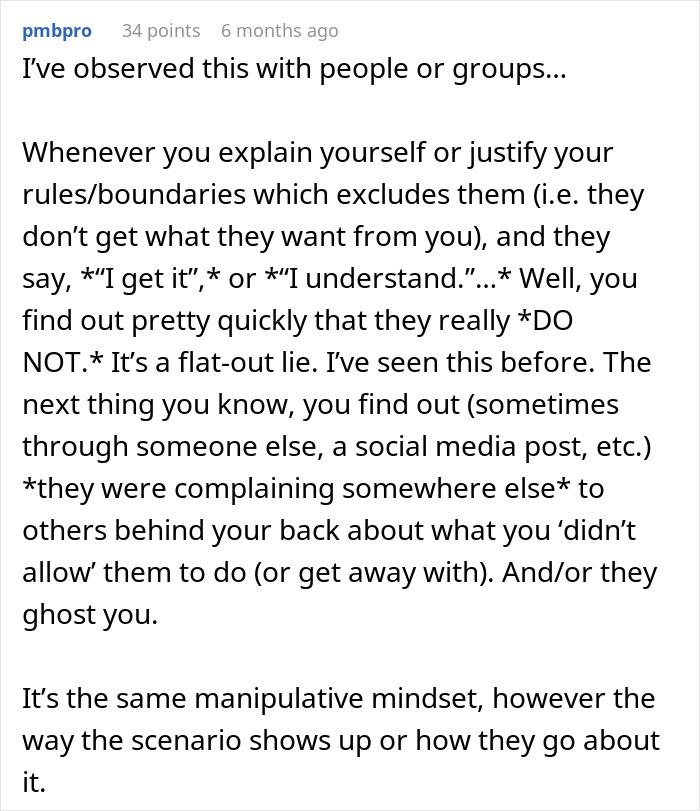Friends have a profound impact on our well-being, for better or worse. A quality friendship can enrich one’s life by providing a sense of community and helping one stay healthier, happier, and less stressed. On the other hand, a bad friend who takes more than they give and tries to make it all about themselves can take a toll on our mood, morale, and other aspects of our mental health.
For this woman, her relationship with her best friend had started to creep into the second category. However, she recently decided to set some boundaries after the friend wanted to crash her relaxing holiday with her toddler and her marital problems.
Scroll down to find the full story and conversation with licensed mental health counselor Veronica Lichtenstein and sexuality, coming out, and divorce support coach Anne-Marie Zanzal, who kindly agreed to share their insights on one-sided friendships.
Friendships have a profound impact on us, for better or worse

Image credits: freepik (not the actual photo)
This woman’s relationship with her best friend started to negatively affect her as she constantly felt like she was being used
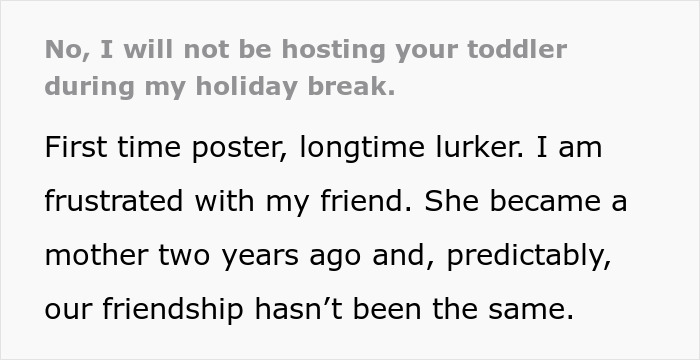
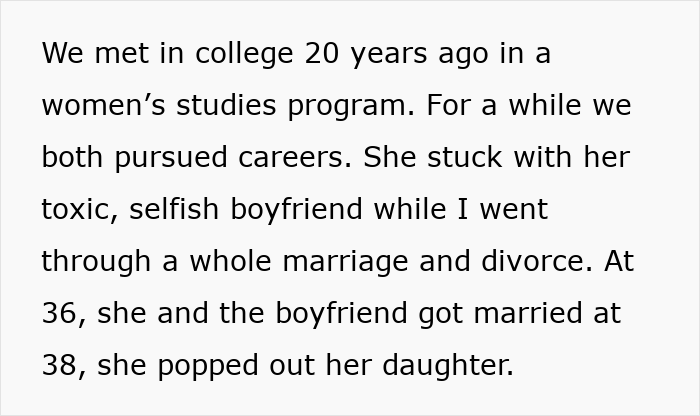
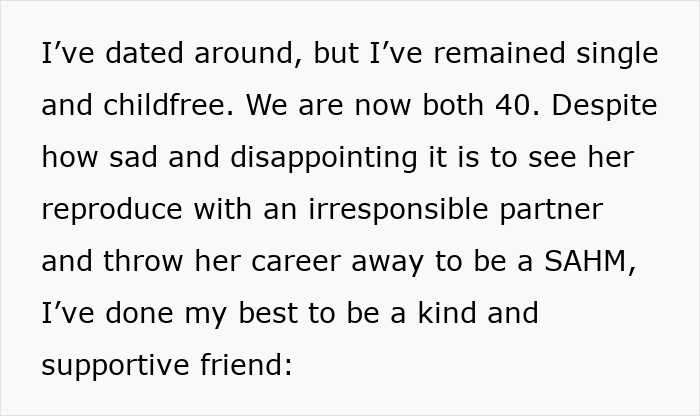

Image credits: A. C./Unsplash (not the actual photo)
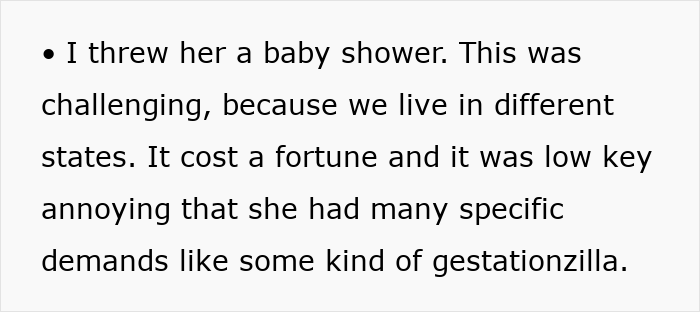
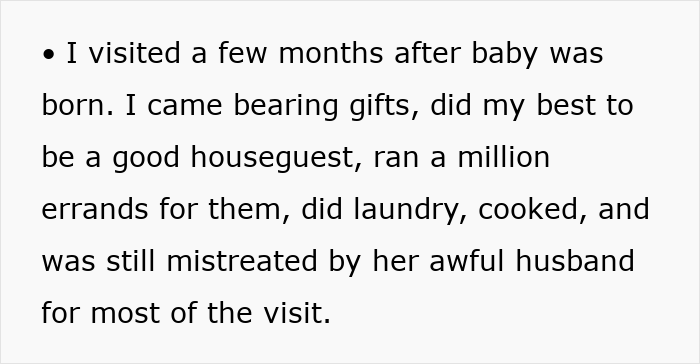

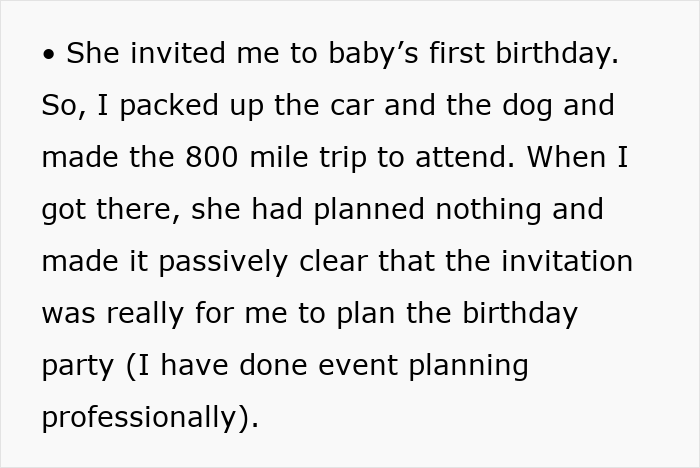

Image credits: Wavebreak Media/Freepik (not the actual photo)
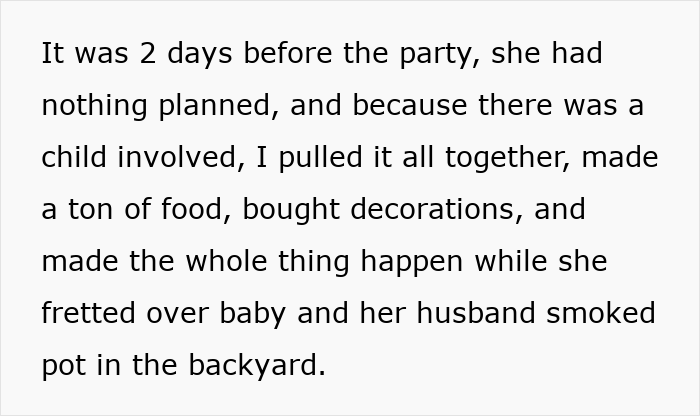
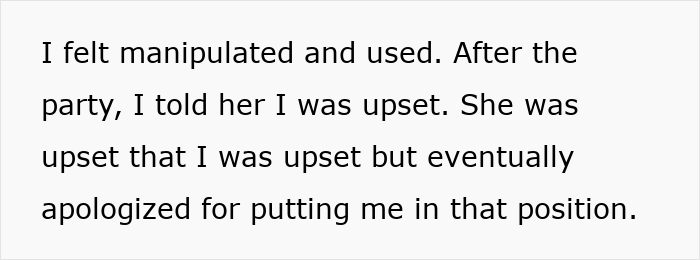
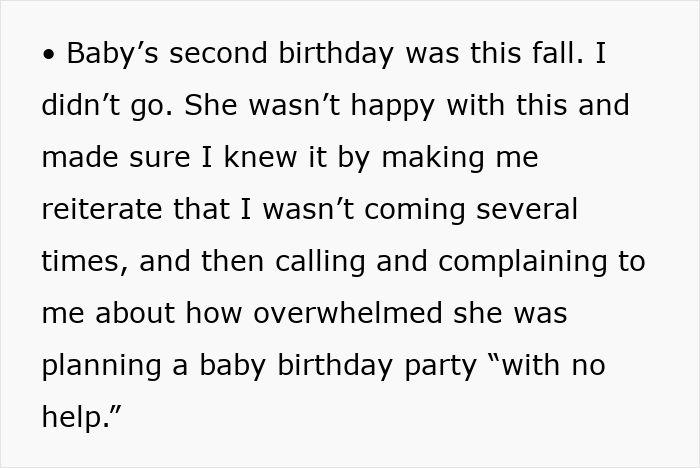
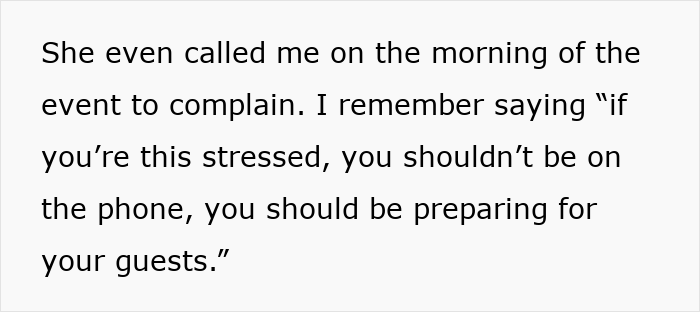
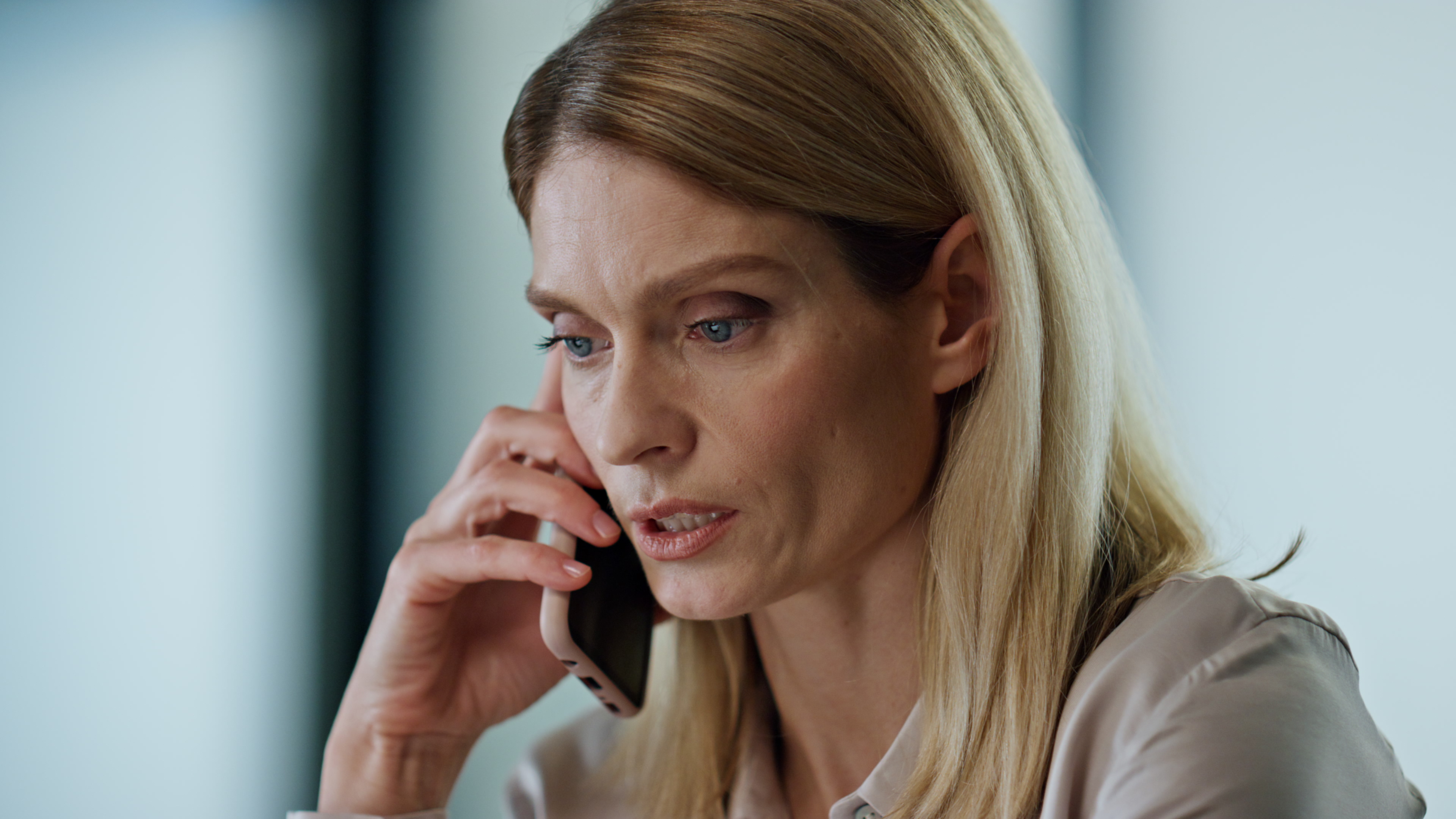
Image credits: Stockbusters/Freepik (not the actual photo)
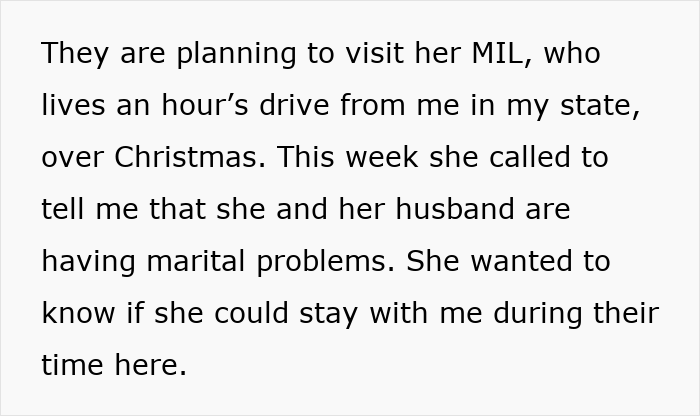
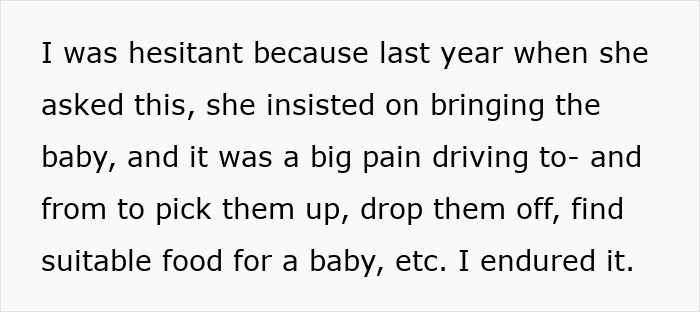
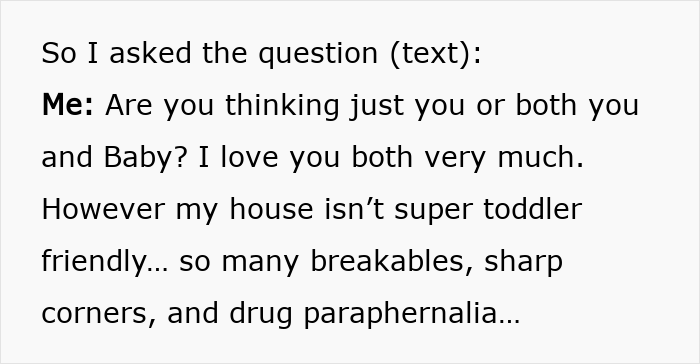
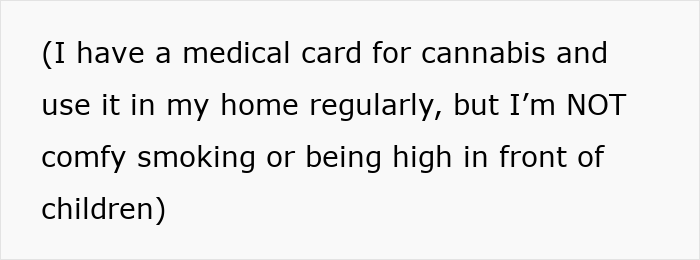

Image credits: olegfedotov/Freepik (not the actual photo)
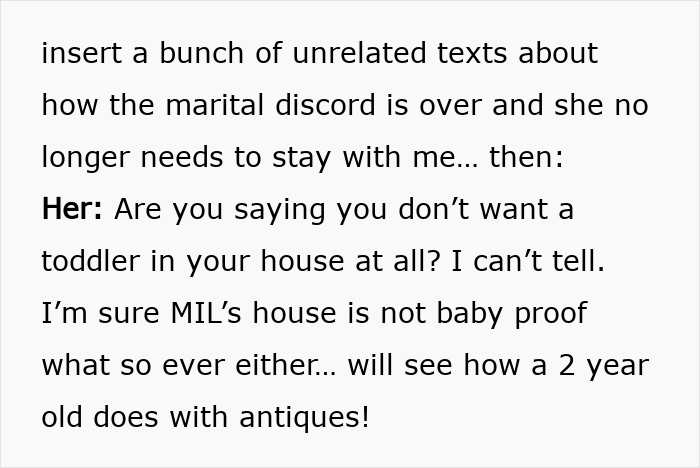
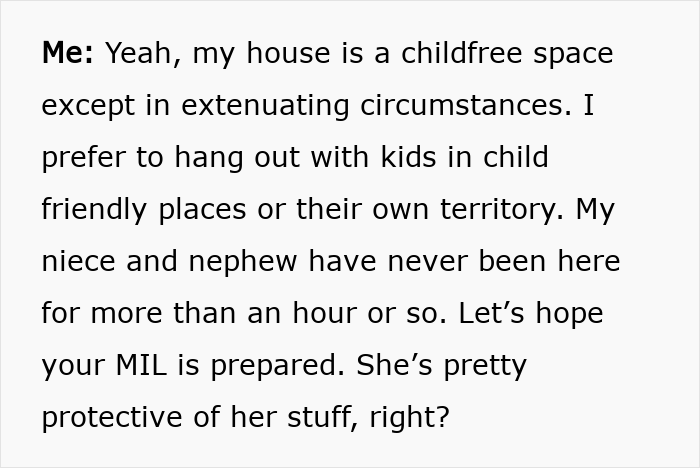
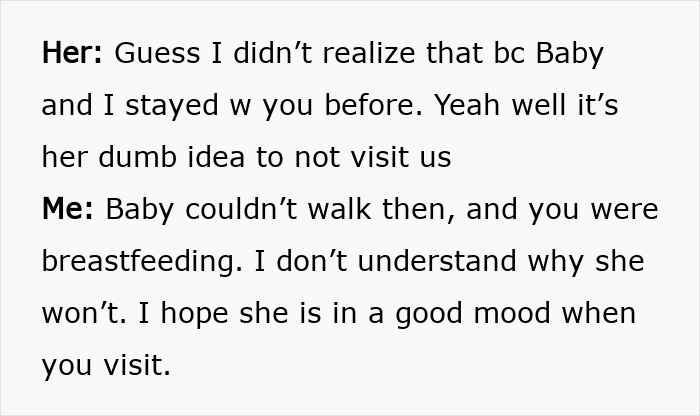
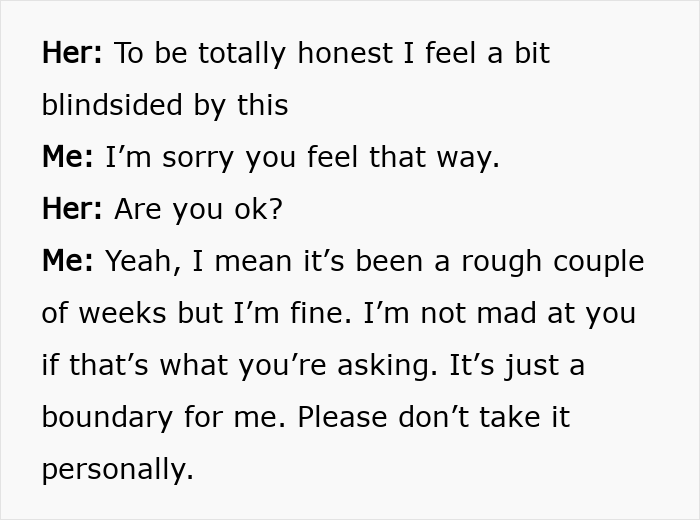
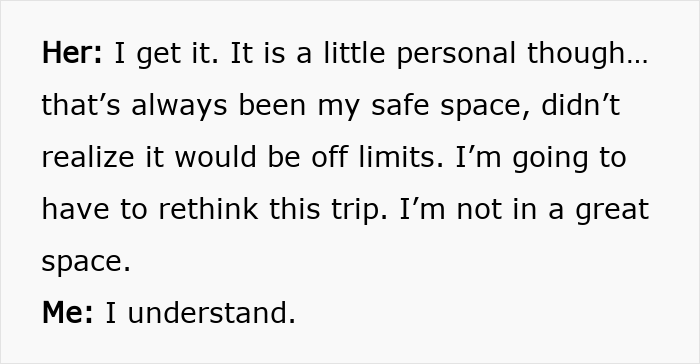

Image credits: New Africa/Freepik (not the actual photo)
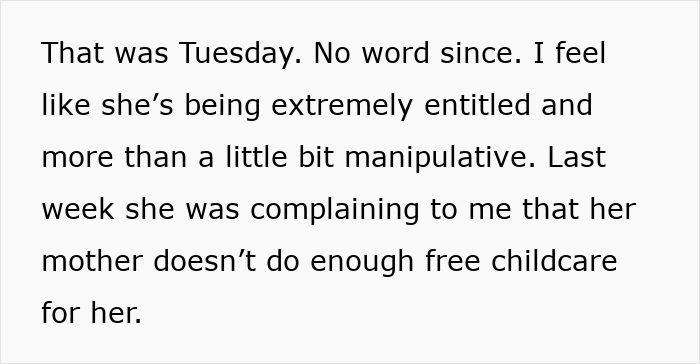
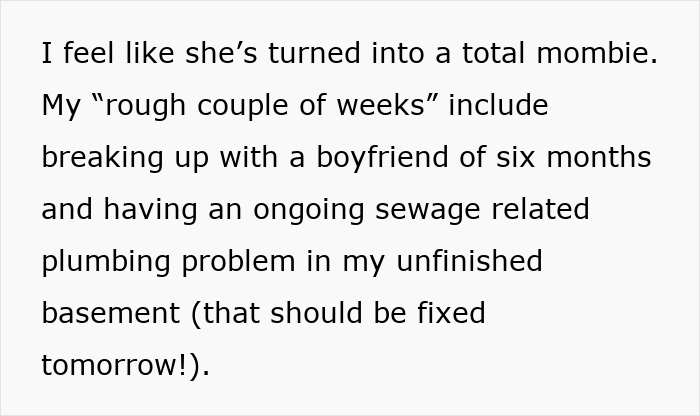
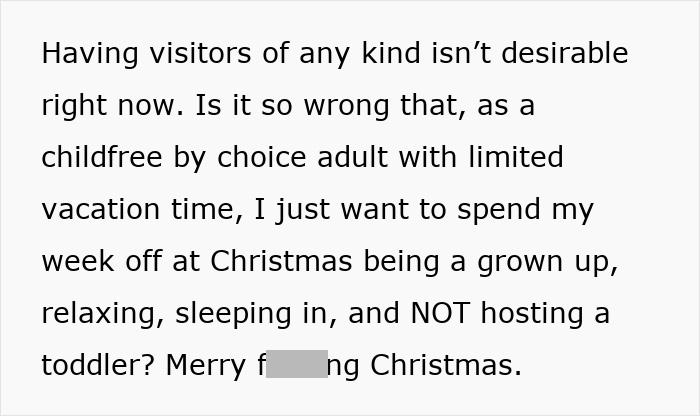
Image credits: [deleted]
“When a friendship is not reciprocal, that can be a red flag that you are being used”
Licensed mental health counselor Veronica Lichtenstein tells Bored Panda that friendships should be all about balance, and if it’s not there, it’s a telltale sign that one of the friends is being taken advantage of.
“If you’re getting something out of the relationship—like support or good times—you’re probably not being used. It’s about balance. If you’re doing things that make you happy, even for your friend, that’s fine. But if you notice that you’re always the one initiating plans or feel drained after hanging out, those are red flags,” she explains.
“When a friendship is not reciprocal, that can be a red flag that you are being used. You’re initiating plans, checking in, remembering birthdays… and it’s rarely reciprocated. Friendship should have a give-and-take rhythm to it,” agrees sexuality, coming out, and divorce support coach Anne-Marie Zanzal.
“It is always about them. They dominate conversations with their problems, needs, and stories—but rarely (if ever) ask about your life or listen with genuine interest. You feel drained, not nourished. After spending time with them, you often feel exhausted, anxious, or like your needs didn’t matter in the interaction,” says Zanzal, listing the signs that indicate someone is being taken advantage of by their friend.
Someone who uses their friends might not even notice that they’re doing it, says Lichtenstein.
“Those with Narcissistic Personality Disorder (NPD) often see situations from their perspective only. Others may have been pampered their whole lives and simply don’t understand boundaries. Plus, we teach people how to treat us; if you’re always available, friends will keep asking because you have taught them that you will say yes.”
“Boundaries are so important in friendship”
When a person notices they’re being taken advantage of by their friend, they should try to set boundaries with them. “Boundaries are so important in friendship. You should be able to say “no” or “I don’t want to” without a friend taking offense. This conversation could be helpful if you believe they are unaware of their advantage-taking behavior,” says Zanzal.
Lichtenstein additionally advises setting a boundary in an honest but direct way. “If you can’t help with something, say so. For example, “I can’t drive you to the party because I have to work,” but offer to help them figure out a ride instead. Friends learn quickly who genuinely wants to help and who doesn’t, and they respect those boundaries if they respect the friendship.”
“You are not ‘mean,’ ‘cold,’ or ‘selfish’ for needing boundaries,” adds Zanzal. “If they react negatively or give the silent treatment, a good question to ask is, ‘Is this relationship worth saving? Is this the type of person I want to hang out with?'”
Setting boundaries and agreeing on what you truly want to do is a great way to avoid being taken advantage of by friends. “If it feels off, don’t commit just because they promise compensation. Setting boundaries is actually a sign of self-respect and can strengthen your friendships. Be clear about your limits, and if you decide to make an exception, communicate that too. Kindness and honesty are key, along with consistent communication,” concludes Lichtenstein.
The commenters supported the original poster



